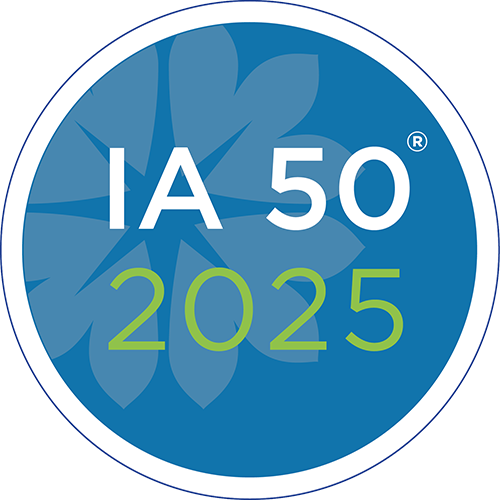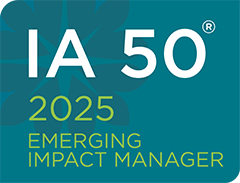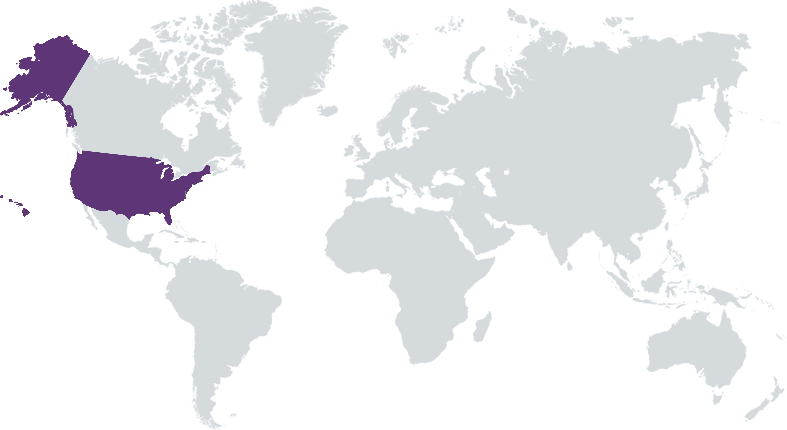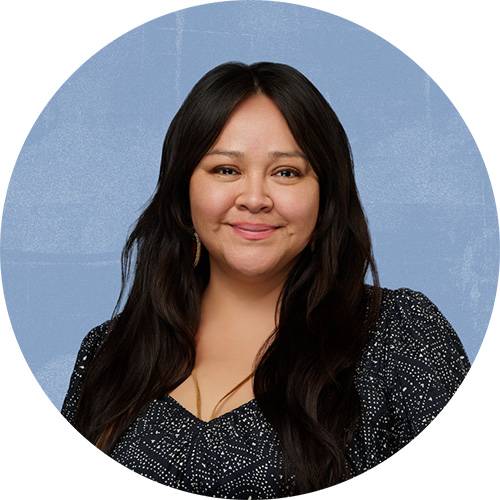IMPACTASSETS 50™
An Annual Showcase of Impact Investment Fund Managers

ImpactAssets 50
An Annual Showcase of Impact Investment Fund Managers

Community Credit Lab

 Financial and Economic Inclusion
Financial and Economic Inclusion Place-based Impact
Place-based Impact Racial Equity and Justice
Racial Equity and JusticeFirm Overview
Community Credit Lab (CCL), an affiliated 501(c)3 nonprofit entity of Common Future, powers community-led solutions that advance racial justice and economic equity with catalytic capital. CCL has two primary goals: (1) To provide catalytic capital and back office lending support to emerging funds and fund managers that build economic power and ownership; (2) To be an investment model for others in the ecosystem that showcases the type of capital and non-financial resources needed to invest in solutions designing the next economy. We support innovators across the country–tackling food and farm justice, property ownership, and business development–all of which put capital and power in the hands of Black and Indigenous communities. We are building a future that serves all—one built by challenging the status quo and advocating for equitable, impactful investment strategies that honor community and cultural values.
Years of Operation: 5 – 9 years
% of Capital from Top 3 Investors: Less than 25%
To realize a vision of economic equity, we must center, uplift, and support solutions designed by people most proximate to the harm and challenges of racism and economic extraction and that enable community-level power and wealth building.
There are many root causes for racial and economic inequality. The focus of the CCL Fund is to address one root cause: the primary goal of our financial system—the accumulation of capital or wealth without bounds or consideration of the negative externalities that result from a singular focus. Racial capitalism is about extracting value from Black and Indigenous communities; therefore, we need to invest in and lift up solutions that center these communities. We believe that increasing access to capital, increasing affordability of capital, and shifting power over community investments will address racial and economic inequality because they directly address why capital does not flow equitably in all communities. This fund will demonstrate how organizations deeply rooted in community can create highly effective strategies for creating community wealth and well-being with technical assistance and early catalytic capital.
We are multiracial, women-led, with a staff and board that are both majority people of color. We are audacious, expansive, and unapologetic thinkers and doers who bring lived experience to the problems we tackle. We rethink conventional notions of risk, return, and wealth—pushing for a paradigm shift toward capital that benefits communities rather than concentrating wealth. We’ve already proven non-extractive loans are possible through the success of our Character-Based Lending pilot. Now, we’re focusing on lending models and emerging funds that prioritize community self-determination, cultural power, and impact. Our Community Credit Lab Board—run by a majority of women of color—ensures we are truly responsive to the needs of our community, from design to distribution of funds. We work closely with internal staff with lived expertise of the communities served about the needs of Black and Indigenous communities to design a fund built for community-rooted solutions.
Investment Example
The intersection between food environment and economic opportunity is pronounced with recent, imminent climate challenges. Initiatives have relied on complex lending programs, highlighting innovative, equity-driven financial tools are critical to promoting equity in food-oriented local development projects. In 2024, we partnered with Kitchen Table Advisors to provide Latina farmers in California access to emergency capital through 0% interest loans. Governing body comprises 14 Latina farmers from Central Coast region–where funds are distributed–and an advisory board of 4 farmers (governing council members), 2 staff, Manzanita Capital Collective as community-based lending advisor, and 1 community member. Functioning on trust, this initiative offers a more equitable, empathetic avenue for delivering financial services to farmers who have historically faced barriers due to discrimination in the industry. Ultimately, this program aims to assist Latina farmers in achieving their business and community-oriented objectives. We look forward to reporting on the impact in the years to come.
Leadership and Team
 |
Sandhya Nakhasi – Co-CEO More Info
Sandhya Nakhasi is an executive leader and champion of a more equitable financial system. She is Co-CEO at Common Future after serving as MD of Impact Investments, using an experimental approach to grow a portfolio of field-defining, equitable lending, community-led investment programs. Before CF acquired Community Credit Lab, Sandhya was Co-Founder—serving as Chief Investment Officer, subsequently as Executive Director—leading the design of affordable, accessible, place-based lending programs. |
 |
Jaime Gloshay – Managing Director of Impact Investments More Info
Jaime, a fierce advocate for economic justice, is the Managing Director of Impact Investments at Common Future, driving catalytic capital into community-rooted organizations. She co-developed the Justice Funders' Just Transition in Investment Framework and serves on the governing bodies of UpTogether, Kiva U.S., and Justice Funders. Appointed by the Governor of New Mexico in 2020, Jaime led the Tribal Subcommittee for the New Mexico Statewide Complete Count Commission, where she spearheaded a statewide effort to fund grassroots organizing and ecosystem activation during the pandemic. |
 |
Chelsea McDaniel – Director of Impact Investments More Info
Chelsea McDaniel is a community investment professional with a passion for food justice. She was the lead architect of the impact strategies for two impact funds, one focused on youth education and one on fiscal justice in Black cities. Prior to joining Common Future, Chelsea led the Fiscal Justice investment research for Activest, where she would identify solutions for fiscal practices that led to negative outcomes for Black communities. She also led the development of a high impact Islamic finance product for youth technical education and training. |
Financial Performance
Impact Performance
|
Percentage of Total Assets Under
Management that are Impact Investments: |
50% – 74%
|
The investment opportunity must address: (1) Increasing Access to Capital for communities historically excluded and extracted from financial system: e.g. How are we/our partners rethinking frameworks to evaluate how and to whom capital is allocated and creating more pathways to investment? (2) Increasing Affordability of Capital for communities historically excluded and extracted from financial system: e.g. How do we/our partners focus on providing most cost-effective and flexible capital to enable innovation, wealth creation, and flow of equitable capital? How is loan structure equitable/affordable? Are terms flexible? (3) Building Power, Choice, and Ownership in and for communities adversely impacted by economic and racial injustice: e.g. How are solutions recognizing or addressing interdependence of wealth-building and limited natural resources on our planet? In what ways does investment shift, share, or build power? How is choice created or used as a result? How are ownership opportunities created or implemented?
Community-based/rooted decision-making: The organization has clear, established methods for the community to have input on decisions, and/or community members have decision-making power within the organization. Community connection & accountability: Leadership can clearly demonstrate that they are from the community served and accountable to the community through binding and/or formalized relationships (e.g. Community stakeholders are consulted about decisions; community members on the Investment Committee or Board; community members in other senior or leadership roles in the organization). Additionally, we are currently working through how an organization prioritizes or is building a trauma-informed approach in their practices, processes, and supports for their staff and communities served; though, we are still trying to understand how we can evaluate this (whether benefits, policies, or otherwise).
Impact Tracking and Monitoring
Learn More
450 Alaskan Way S, Suite 200, Seattle, WA 98104 USA
Apply for the IA 50 2022
The application period to become an ImpactAssets 50 2022 Fund Manager will open in September 2021!
To stay informed on the application process, sign up here.
